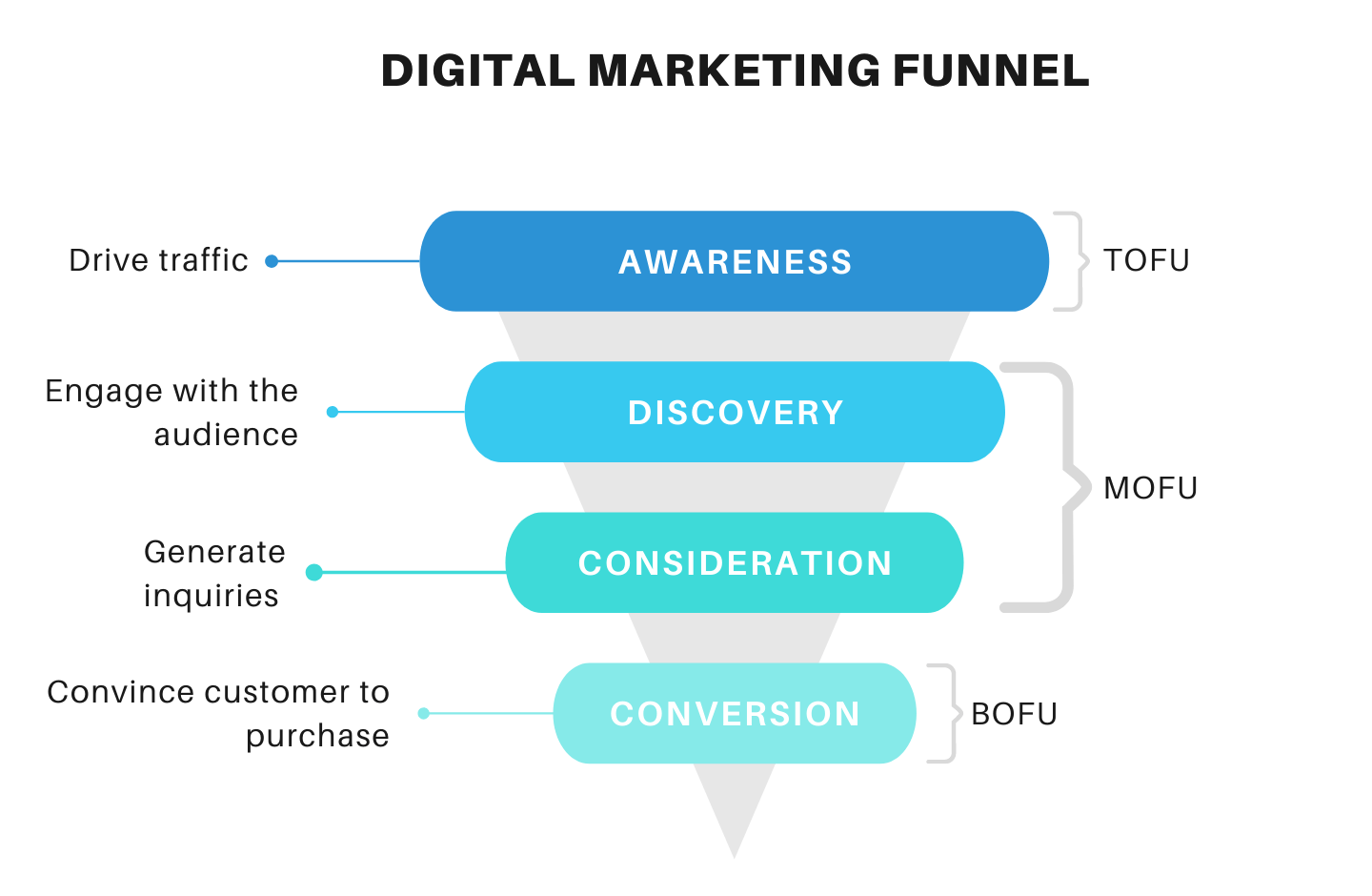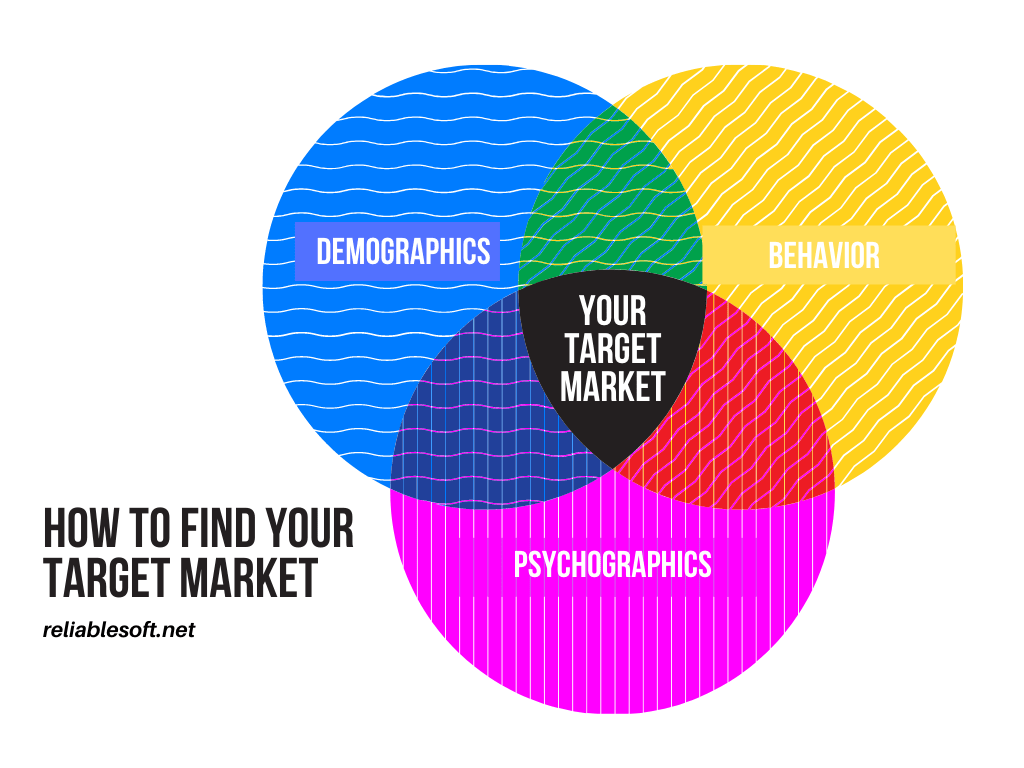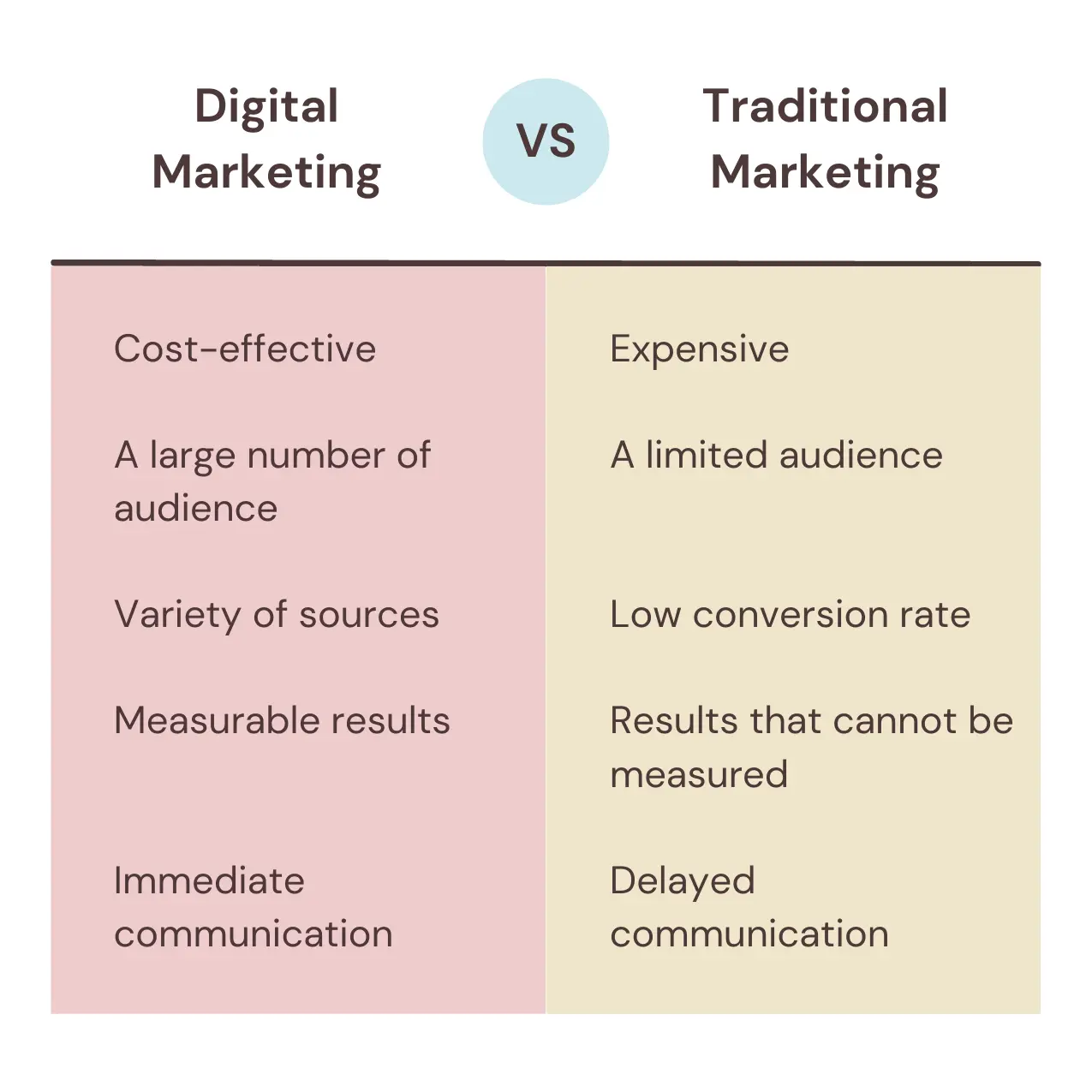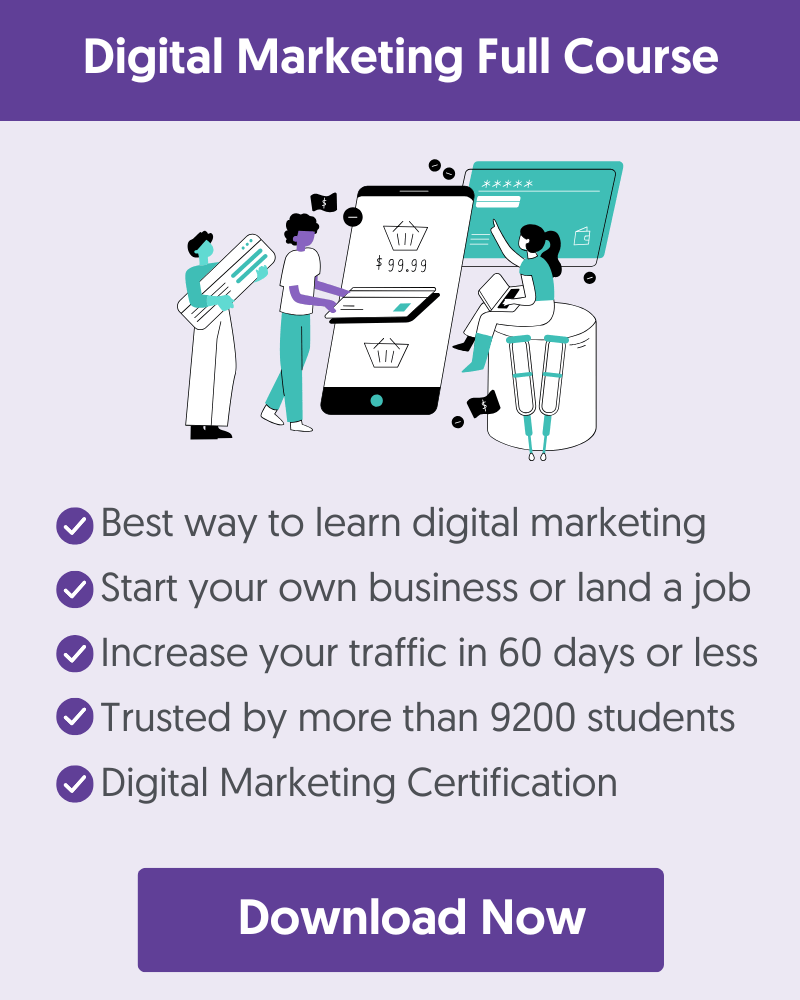- 1. Increase Visibility
- 2. Targeted Advertising
- 3. Cost-Effective Compared To Traditional Marketing
- 4. Measurable Results
- 5. Increase Customer Engagement And Loyalty
- 6. Understand Customer Behavior
- 7. Greater Flexibility
- 8. Access to Global Markets
- 9. Improved Conversion Rates
- 10. Gives Small Businesses a Competitive Edge
- Get Started With Digital Marketing
Small businesses face several challenges when it comes to marketing. Not only do they need to differentiate themselves from competing brands, but they also need to increase their reach and acquire as many customers as possible on a limited budget.
While there are many ways to approach marketing, from offline print ads to coupon and outdoor advertising, digital marketing is the most effective strategy for most brands.
Using online marketing techniques, such as SEO, social media marketing, email marketing, content marketing, affiliate marketing, and PPC, companies of all sizes can connect with consumers where they spend most of their time – on the web.
The right digital marketing strategies convert customers, increase reach, and allow you to grow your business.
In this post, I will walk you through the most important benefits of digital marketing for small businesses.
1. Increase Visibility
Over 50% of today’s small businesses rank lead generation as one of their top marketing challenges. To generate leads, you first need to connect with your target audience.
Compared to traditional marketing strategies, which generally only allow you to connect with a fraction of your audience, digital marketing offers much greater reach.
Through digital marketing, companies can connect with their customers at every stage of their buying journey.
For example, Search Engine Optimization (SEO) lets you attract people actively searching for solutions, boosting your visibility by helping you appear in search results for relevant keywords. Investing in SEO makes it easy for potential customers to find you whenever they need your products or services.
PPC (pay-per-click) advertising can position you at the top of the search results for consumers in your target audience or demographic, helping you generate warm and hot leads.
Social media also allows you to showcase your brand to a highly targeted audience based on their behaviors and preferences. You can reach people at precise moments in their buying journey, increasing the likelihood they’ll engage with your content or make a purchase.

With digital marketing, your small business isn’t limited to one channel or touchpoint; you’re visible wherever your customers are online.
2. Targeted Advertising
Digital marketing helps small businesses connect with more potential leads and prospects and ensures they can reach the right people—their target audience.
Every business has a specific “ideal customer” it wants to appeal to—the people most likely to benefit from its services and interact with its brand.
Through Google Ads and Facebook Ads, companies can leverage tools to show their campaigns to customers with the right demographics, interests, and behaviors.

Tailoring your campaigns to your target market means you’re more likely to generate positive results. At the same time, it reduces the marketing budget you might waste on connecting with less interested consumers.
Companies can even leverage email marketing and automation tools to send highly personalized messages to customers, something crucial in a world where around 80% of customers say they’re more likely to buy from a company that offers a tailored experience.
3. Cost-Effective Compared To Traditional Marketing
Keeping marketing costs low is crucial for small businesses with limited budgets. Traditional advertising methods, like TV, radio, and print, tend to be costly, especially for startups, and often don’t offer measurable returns.
Digital marketing, on the other hand, is cost-effective and flexible. Content marketing, for example, allows you to attract leads through informative blog posts, guides, and articles. With some basic writing skills, you can leverage SEO to drive traffic to your website with minimal costs.
Social media is another cost-effective approach to building relationships with your audience. You don’t need a large marketing team to succeed; by posting valuable and engaging content, you can build a following and drive conversions.
Email marketing, too, is incredibly efficient. With a small investment, email campaigns can generate impressive returns—on average, $36 for every $1 spent.

4. Measurable Results
Most marketers know that to increase their marketing ROI and reduce costs, they must monitor and consistently optimize their campaigns. However, it can be challenging to get a full view of the ROI of your campaigns when you’re using traditional marketing strategies.
Assessing the key metrics relevant to your business and growth with digital marketing is much simpler. You don’t need to wait until a campaign ends to gather data and analyze results.
Facebook and many other social media tools have built-in analytical systems that allow users to track click-through rates, engagement levels, and cost per click.
Google and other PPC marketing platforms offer insights into the most valuable campaigns so you can make data-driven decisions.
There are even free tools like Google Analytics, which can help you analyze crucial information about the impact of each digital marketing strategy.
5. Increase Customer Engagement And Loyalty
One of the biggest benefits of digital marketing is that it allows smaller businesses to interact with and consistently engage with their audience.
With tools like social media, content marketing, and email, you can regularly interact with your customers and keep your brand top-of-mind.
Being active across multiple channels makes your business appear more professional and authentic. In fact, studies show that customers are more likely to trust brands with a solid online presence.
Digital marketing also allows you to share valuable information with your audience. You can post relevant news and updates on social media or use email to inform customers about new products and services.
Additionally, features like chatbots and virtual assistants can engage website visitors in real-time, answering questions and recommending products, enhancing customer satisfaction and loyalty.
6. Understand Customer Behavior
Today’s consumers expect brands to understand their needs and preferences more deeply. Digital marketing tools allow you to track and analyze customer behavior and offer a tailored experience.
By mapping your customer’s journey, you’ll gain insights into what each individual needs to make a purchase, enabling you to create more effective, targeted campaigns. For instance, you can use social media polls and surveys to gather valuable audience feedback, giving you direct insights into their preferences.
With this data, you can develop marketing campaigns that speak directly to your audience, enhancing relevance and engagement. This personalization reduces wasted ad spend, increases campaign effectiveness, and boosts ROI—all while strengthening your brand’s connection with its customers.
7. Greater Flexibility
While traditional marketing methods may benefit some brands, they’re often rigid and restrictive. If you create a TV ad and discover it’s not performing as well as you’d hoped, you can’t easily change the messaging or visuals the next day.
However, digital marketing is a highly agile advertising solution that allows companies to adapt and adjust their strategies quickly. If a social media ad isn’t delivering the expected results, you can tweak the content, update the visuals, or target a different audience—all in real-time.
With digital marketing, you also have the flexibility to test multiple versions of an ad (A/B testing) to see which one resonates best with your audience. This adaptability ensures you continually optimize your campaigns for better performance, helping you get the most value out of every marketing dollar.
8. Access to Global Markets
Digital marketing allows small businesses to grow beyond local limits by scaling online campaigns to reach audiences worldwide. For example, using international SEO strategies, you can optimize your content to rank well in other countries, ensuring it resonates with diverse audiences.
Social media marketing lets you target specific countries or regions, tailoring ads and content based on local preferences and behaviors.
With email marketing, you can segment your list by location to send personalized messages that speak to customers’ unique interests and needs, regardless of where they are.
This ability to tap into global markets opens new growth opportunities without the high costs of traditional international advertising.
9. Improved Conversion Rates
Conversions are crucial for small business growth, and digital marketing provides the tools to boost sales and revenue. With digital strategies, you can create highly targeted landing pages that use lead magnets—such as free downloads or special offers—to capture contact details and turn visitors into leads.
Investing in targeted PPC campaigns and personalized content lets you connect with specific customer segments and address their needs directly. This approach increases engagement and improves the likelihood of converting leads into loyal customers, maximizing your return on investment.
10. Gives Small Businesses a Competitive Edge
By investing in digital marketing, smaller companies can level the playing field against bigger brands, using the same tools and strategies to increase visibility, reach new audiences, and drive growth.
Through SEO, social media, or targeted advertising, digital marketing empowers small businesses to compete effectively, expand their market share, and build a strong brand presence—even against larger, established competitors.
Get Started With Digital Marketing
Digital marketing offers many benefits to businesses of all types and sizes. Small businesses benefit most since digital marketing can drive prosperity and growth. To get started with digital marketing, use the following guides:
- Digital Marketing Courses - online courses to help you master all aspects of digital marketing.
- Digital Marketing Certifications - a list of the most popular digital marketing certificates for becoming a certified digital marketer.
- Learn Digital Marketing - a step-by-step guide on how to teach yourself digital marketing.
- Digital Marketing Examples




